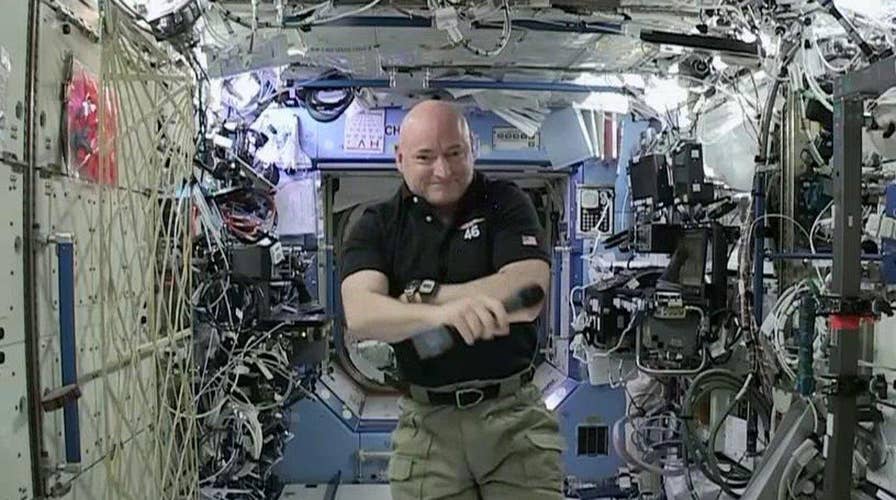Astronaut Scott Kelly reflects on his year in space
What he will miss most about working in the space station
Astronaut Scott Kelly landed safely in Kazakhstan early Wednesday, culminating an unprecedented yearlong mission in space.
The Soyuz capsule carrying Kelly and his roommate for the past 340 days, Russian cosmonaut Mikhail Kornienko, landed in the central Asian nation at around 10:25 a.m. local time (11:25 p.m. Tuesday EST). They were met by freezing temperatures, just like when they launched on March 27 of last year.
Kelly pumped his fist as he emerged from the capsule, then gave a thumbs up. He smiled and chatted with his doctors and others, as photographers crushed around him in the freezing cold.
"The air feels great out here," NASA spokesman at the scene, Rob Navias, quoted Kelly as saying. "I have no idea why you guys are all bundled up."
Clearly animated and looking well, Kelly said he didn't feel much different than he did after his five-month station mission five years ago.
Following touchdown, the two yearlong spacemen were scheduled to undergo a series of medical tests. NASA wants to know the effects of a year in zero gravity on the body before committing to manned missions to Mars.
Kelly will then head to Houston with two flight surgeons and several other NASA reps, where he'll be reunited with his two daughters, ages 21 and 12; his girlfriend, a NASA public affairs representative at Johnson Space Center; and his brother and his wife, former Arizona congresswoman Gabrielle Giffords.
Kelly spent 125 more days in space than the closest U.S. contender. In all, he and Kornienko traveled 144 million miles through space, circled the world 5,440 times and experienced 10,880 orbital sunrises and sunsets.
"A really smart person said to me one time, 'Teamwork makes the dreamwork in spaceflight,' and spaceflight is the biggest team sport there is," Kelly said Monday as he relinquished command of the space station. He acknowledged each of the 13 U.S., Russian, European and Japanese space fliers with whom he and Kornienko lived during the past year. "It's incredibly important that we all work together to make what is seemingly impossible, possible."
For NASA, that mission possible is Mars.
Scientists are hoping for more one-year subjects as NASA gears up for human expeditions to Mars in the 2030s. Radiation will be a top challenge, along with the body and mind's durability on what will be a 2½-year journey round trip.
The choice of the pioneering Kelly turned out to be a bonanza. His identical twin, retired astronaut Mark Kelly, offered himself up as a medical guinea pig so researchers could study the differences between the genetic doubles, one in space and the other on the ground. They provided blood, saliva and urine samples, underwent ultrasounds and bone scans, got flu shots and more, all in the name of science.
Kelly has spent more time in space, altogether, than any other American: 520 days over the course of four missions. Realizing this is likely his last journey, it was "a little bittersweet" saying goodbye to his orbiting home. He'll have plenty of pictures, at least, for the scrapbook — he posted 1,000 dramatic, color-drenched pictures of Earth on his Twitter and Instagram accounts.
The Associated Press contributed to this report.








































